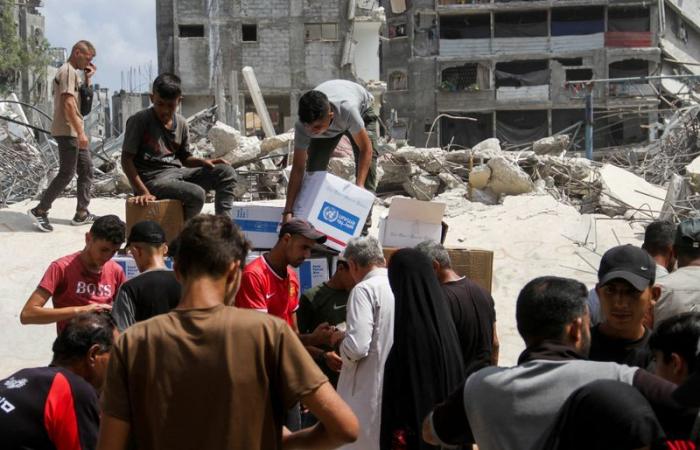The United States will decide this week whether Israel has made progress in improving the humanitarian situation in the Gaza Strip and how Washington will respond, national security adviser Jake Sullivan said Sunday, as Israel began presenting its arguments.
In a letter dated Oct. 13 and signed by Secretary of State Antony Blinken and Defense Secretary Lloyd Austin, President Joe Biden’s administration told Israel that the longtime U.S. ally must take a series of measures within 30 days, under penalty of seeing American military aid restricted.
“This week we will report on progress,” Mr. Sullivan said on CBS’s “Face the Nation.” “Then Secretary Austin, Secretary Blinken, and the President will weigh in on what we do in response, and I’m not going to get ahead of myself on that.
COGAT, the Israeli military agency that handles Palestinian civilian affairs, released on Sunday a list of Israel’s humanitarian efforts over the past six months, “highlighting recent initiatives and detailing plans to maintain support for Gaza as winter approaches.
“Through expanded routes, medical assistance, improved infrastructure, and coordination with international partners, COGAT continues to facilitate the implementation of humanitarian efforts intended to assist the civilian population of the Gaza Strip,” the agency said.
The US deadline is set to expire just days after global food security experts said it was “highly likely that famine is imminent in some areas” of the northern Gaza Strip, as Israel continues its military offensive against Palestinian Hamas militants in this region.
Israel began its vast military offensive in the northern Gaza Strip last month. The United States has said it is ensuring that Israel’s actions on the ground show that Prime Minister Benjamin Netanyahu’s government does not have a “starvation policy” in the north.
COGAT reacted on Saturday to the rare alert issued by the Independent Famine Review Committee, which reviews the results of the internationally recognized standard known as the Integrated Food Security Phase Classification.
The Israeli agency said that “all CIP projections have proven to be incorrect and inconsistent with the situation on the ground” and that the Israeli military is “operating and will continue to operate in accordance with international law to facilitate the transfer of the humanitarian aid to Gaza.
COGAT also said on Friday that it was preparing to open another crossing point – at Kissufim – into Gaza.
The amount of aid entering the Gaza Strip has fallen to its lowest level in a year, according to UN data, and the UN has accused Israel of obstructing and blocking attempts to deliver aid. aid, particularly in the northern Gaza Strip.
In response to the famine alert, the director of UNRWA, the United Nations agency for aid to the Palestinians, Philippe Lazzarini, accused Israel of using hunger as a weapon.
“This deprives the inhabitants of Gaza of the essentials, in particular the food necessary for their survival,” Mr. Lazzarini wrote in a message published on social networks on Saturday. “What is allowed into Gaza is not enough, an average of just over 30 trucks per day. This represents just over six percent of the daily requirement.”
Last month, Israeli Ambassador to the UN Danny Danon told the Security Council that the problem in Gaza was not a lack of aid, saying more than a million tonnes had been delivered to the during the past year. He accused Hamas of diverting aid.
Hamas has denied Israeli allegations that it was stealing aid and accused Israel of causing the shortages.






